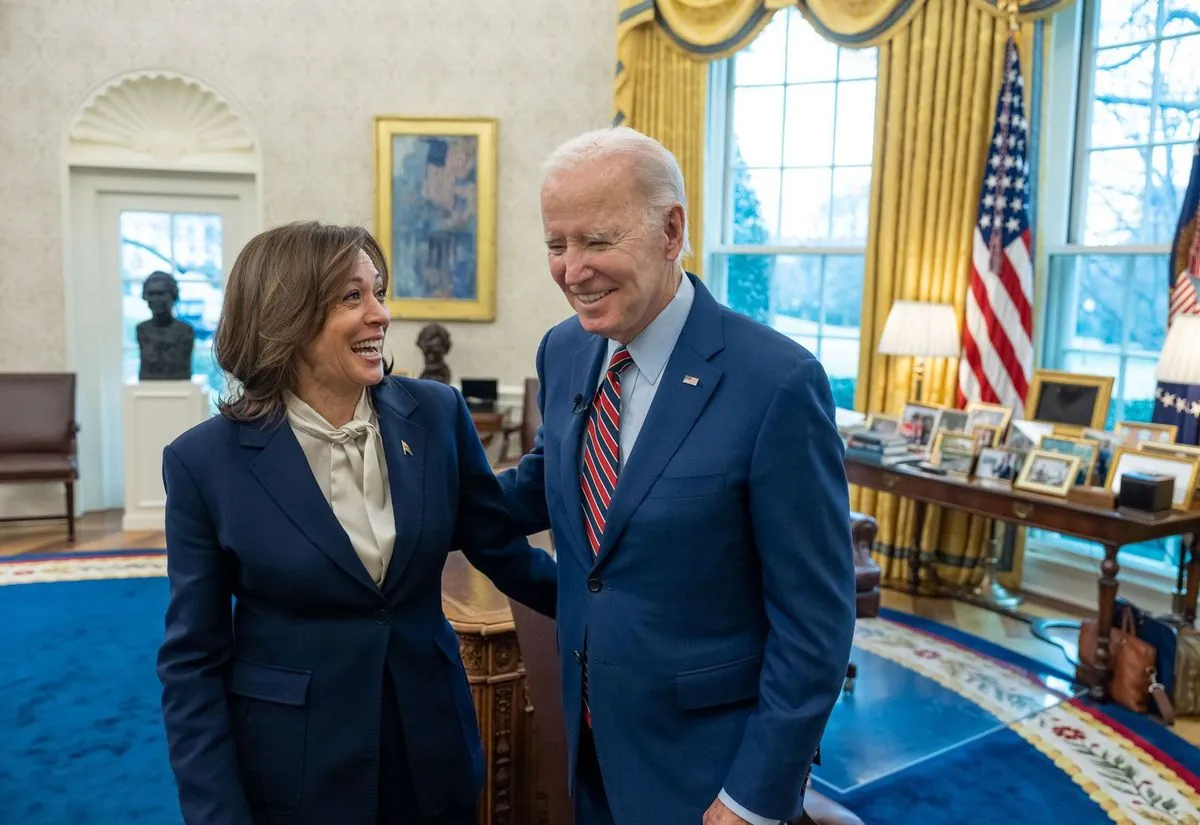Harris Faces Balkan Policy Scrutiny as U.S. Strategy Falters
Vice President Kamala Harris prepares for debate amid criticism of Biden's Balkans policy. U.S. approach to Serbia raises concerns about regional stability and strategic interests in southeastern Europe.

As Vice President Kamala Harris prepares for her September 10, 2024 debate with former President Donald Trump, the Biden administration's Balkans policy has come under scrutiny. The situation in the region has deteriorated during President Joe Biden's tenure, raising questions about the effectiveness of U.S. strategy in southeastern Europe.
The Biden administration's approach to the Balkans, particularly its relationship with Serbian President Aleksandar Vucic, has drawn criticism. By seemingly prioritizing short-term deals over long-term stability, the U.S. has inadvertently emboldened Vucic's autocratic tendencies and nationalist ambitions.
Serbia's actions have undermined the sovereignty and Euro-Atlantic aspirations of its neighbors:
- An armed plot in Kosovo's northern town of Banjska in September 2023
- Hosting the "All Serbian Assembly" in June 2024, promoting irredentist ideas
- Influencing Montenegro's parliament to pass a resolution straining relations with Croatia in July 2024
The U.S. response to these developments has been perceived as inadequate. While sanctions have been imposed on various regional actors, few Serbian officials have faced consequences for their actions.

Kosovo's situation has also worsened under Prime Minister Albin Kurti's leadership. His unilateral actions in the Serb-majority north have strained relations with Western allies and risked undoing the country's constitutional guarantees for minority rights. Paradoxically, Kurti's defiance of U.S. pressure has resonated with Kosovo's pro-American public, who view him as standing up to Serbian influence.
The stalled Serbia-Kosovo dialogue exemplifies the challenges facing U.S. policy in the region. Neither Vucic nor Kurti have moved forward with the unsigned normalization agreement promoted by Washington and Brussels. In December 2023, Serbia formally notified the EU that it does not consider the accord legally binding.
Serbia's relationships with Russia, China, and other autocratic regimes have continued to flourish despite U.S. efforts. Notable events include:
- A three-year gas deal with Russia signed in May 2022
- A foreign policy pact with Russia in September 2022
- An agreement with Hungary to build a pipeline for Russian oil in October 2022
- The launch of Russia Today's Serbian website in November 2022
- Expanded relations with Iran, announced in September 2024
Critics argue that the U.S. has missed opportunities to challenge Vucic's duplicitous balancing act between EU aspirations and autocratic alliances. The invasion of Ukraine in February 2022 could have been leveraged to demand greater alignment with Western positions, but instead, the U.S. Embassy in Belgrade praised Serbia's half-measures.
As the debate approaches, Kamala Harris faces the challenge of articulating a more effective Balkans strategy. The current approach, which appears to prioritize short-term deals over democratic values and regional stability, risks undermining long-term U.S. interests in a "Europe that is whole, free, and at peace."
"We are pleased with the growing forms of cooperation between Serbia and Ukraine."
This statement highlights the disconnect between U.S. diplomatic rhetoric and the complex realities on the ground in the Balkans.
To address these issues, a comprehensive reevaluation of U.S. policy in the region may be necessary. This could involve:
- Reassessing the approach to Serbia and its regional influence
- Strengthening support for democratic institutions and processes
- Coordinating more closely with European allies on a unified strategy
- Addressing the root causes of ongoing tensions and conflicts
As the situation in the Balkans continues to evolve, the effectiveness of U.S. foreign policy in the region remains a critical issue for both domestic political debates and international strategic considerations.


































